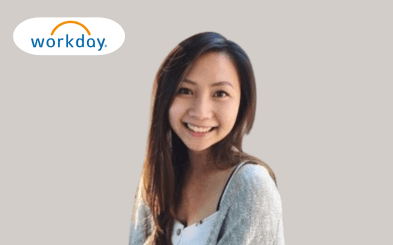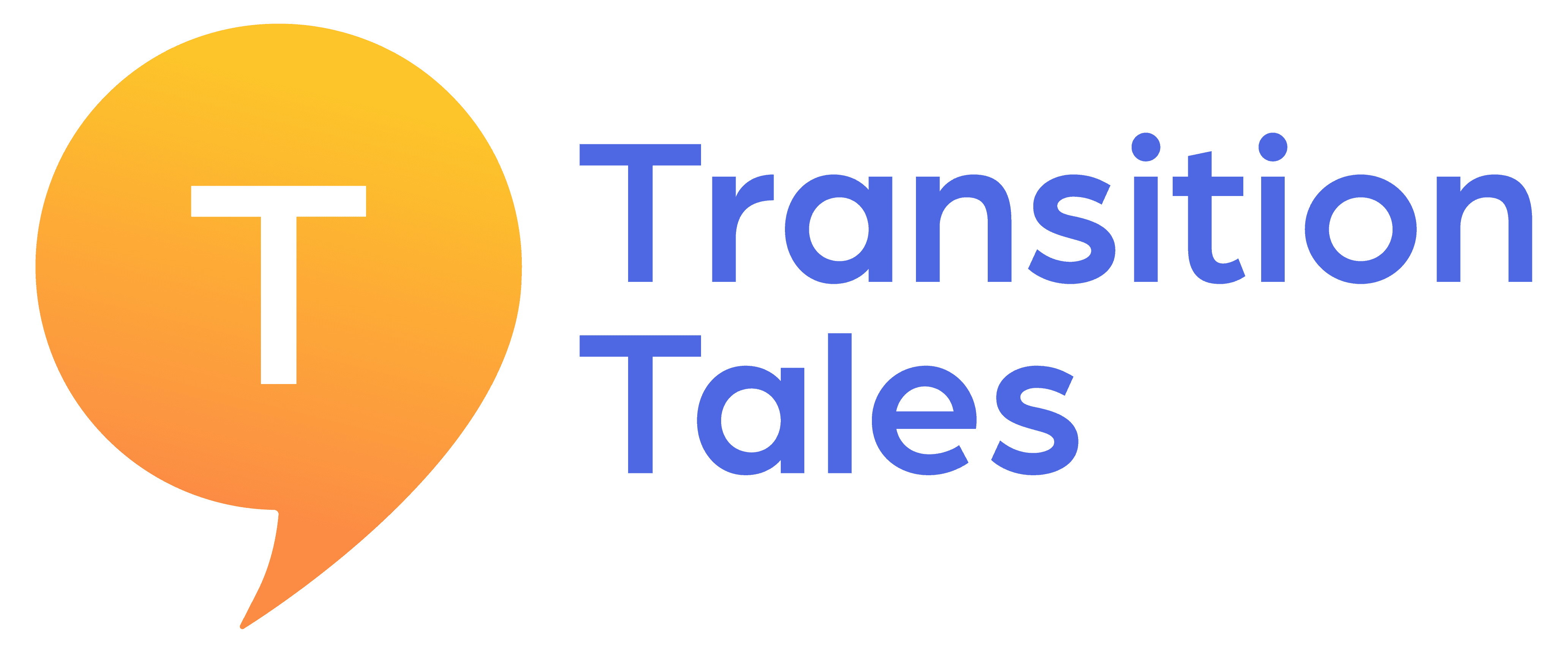Profile
How My Found a Career That Busted the Immigrant Myth: Working Isn't Supposed to be Fun
About
Challenges
Resources

My Vu
Senior Product Manager at Workday
Transition Summary
Consultant, OnPrem Solution Partners
Product Manager, Warner Brothers
Sr. Product Manager, Workday
What are you up to these days?
My name's My. I’m a PM at Workday where I primarily work on our design system, which is a collection of design component code libraries that helps product teams create and launch products quicker.
What did your career transition sequence look like?
I started out my career as a technology consultant working primarily in the media and entertainment industry. I did that for about two years before I transitioned into a PM role within the media entertainment industry. And then I moved to Workday after that!
How did you start in the entertainment industry as a tech consultant?
Honestly, I think the common theme in my career just happens to be luck. I applied for one job and I got it right away.
I stumbled upon consulting very randomly at a college career fair. I decided at the last minute to stop by a table because the name sounded interesting. Turns out they did consulting services for media entertainment and they worked on all the things behind the scenes in media that you might not think about like pricing strategies and data collection for ads.
And I just joined after that.
How did you make the transition from consulting to PM?
I didn’t know what a PM was out of college but about a year or two into my career in consulting, I was assigned on a staff augmentation project as a product/project manager at Warner Brothers, which is essentially where a consultant temporarily fills a role a company needs.
It was a few months into that role where I was really seriously considering product management more.
I ended up getting Scrum certified and took Fundamentals of Product Management through the Stanford Continued Studies Program funded by my consulting firm.
It was basically a six to eight weeks course over the summer, all virtual. It's very popular and it basically runs through all of the fundamentals of product management. You learn about marketing analysis, doing your wireframing, running a scrum team in a group, defining requirements, and the program culminates in a pitch for your project.
I would say all of that was actually really helpful to help me understand what I could expect as a product manager and help confirm that it was a career path I wanted to look into.
After doing that for a year that team eventually started hiring and I was like, “you know what? I might as well. I like this team. I might as well make it full time.”
So when my consulting project lead asked me “How did you find the work so far? We're contemplating putting you on more projects,” I was just pretty transparent with them and said, “Hey, I really appreciate more learning opportunities. But as a heads up, I'm also interested in pursuing product opportunities.”
And it just ended up in them saying, “Well, if that’s the case, we'd like to hire you on board.”
I didn’t really have the traditional interview process because I had already worked with them for so long so it was just more of a fast pass
What’s the difference between PM roles in entertainment vs tech?
I think PM roles are different based on industry, but also disciplines. My PM role at Warner Bros was very data focused. Whereas my role at Workday is design focused.
Another difference was the relationships between the PM role and other cross functional teams.
At Warner Brothers, it was marketing, campaign, data science. At Workday, I work with different teams like our accessibility team and our globalization team.
How did you transition from Warner Brothers to Workday?
As a rule of thumb, I recommend that everyone look into the job market considering new roles every year or so.
So honestly, when I applied to Workday, I was thinking I’d test out some interviewing skills. But I ended up interviewing with a team that I really enjoyed. But I will say what pushed me to apply to this role specifically was the emphasis on design. So at Warner Bros working in data specifically, we didn't really have access to designers.
So anytime we had a new internal tool, you were mostly reliant on whoever's building that tool to provide the actual UI for it. But for the most part, it usually doesn't look as nice as a polished end customer product.
So because I've never had a chance to work with design before I decided I might as well apply and really fill that gap.
I think after my second round of interview is when I decided, yeah, this is actually a team that I am very interested in joining. I had about three different interviewers that were engineers and it gave me a lot more insight into their team culture, which I realized was very strong. And in one of my interviews, we ended up wrapping up early so we just spent time talking about Video games. It was nice to know that if I did get an offer and if I did choose to join this team, our focus isn't always going to be work. They were actually interested in my day to day life and the hobbies that I have, which was really nice.
Sign up for our newsletter
Discover inspiring stories, valuable resources, and advice to navigate your
career transition with people who are two steps ahead of you.
How did you break into a design focused PM role with no design experience?
I even asked my manager, “why did you even hire me? I had zero design experience. I was basically coming in as a brand new PM at that point, just because I had no idea what even goes on in the design space, much less like a design system.”
And what he told me was essentially, “you just showed that you were eager to learn.” I was able to convince him that I'm motivated by curiosity and I wanted to dedicate time into learning the space.
Easily he could have said, no, I want to go with someone else who has more design experience. But he gave me a shot. Even in this job market, you just need to find the one person who's willing to give you a shot and see your potential.
I think specifically for how I interviewed to demonstrate that potential, apart from working on case study interviews through resources on Youtube, I do a lot of studying within the industry itself and the product itself for every interview.
So in this case I read through every single page of their website and documentation. I found some typos, had some recommendations that I would want to change, and that's what I did in my first six months at this job. We did a site redesign, which was really cool.
How do you approach finding mentorship in your career?
All of my managers were my mentors and they are my mentors still.
And again, I'm going to throw that luck piece in there because every single job I've had, my managers have just kept getting better and better in the way that the form of support that they provide for me and I've had open and honest conversations about with a lot of my managers about new opportunities I might want to explore whether or not that’s me pitching for a new project I want to do at my current role or being interested in different teams so they've always been very supportive and open for me.
And then my old consulting firm had mentorship programs that I participated in as well which was really beneficial. If your company has a mentorship program, definitely sign up for it and contribute back to it.
And I think lastly, I would just say I find a lot of great mentors in my friends. A lot of them are product managers, program managers, product marketing managers. We share the same struggles, we share the same experiences and challenges.
So I do look up to them a lot especially when I'm stuck making certain career decisions. Your friends are there for you. Just because they're your friends doesn't mean they can't be your mentor as well.
What would you be looking for in your next job?
I'm technically an immigrant because I was born in Vietnam. With that mentality and history, I was always told that I was going to hate your job, no matter what, all that matters is you're making money and it's stable. And initially, that’s all I cared about. But I've been very spoiled with my amazing team, amazing manager, amazing partners.
In my next role, I would look for that wonderful team culture and by no means am I expecting to come into a team with great culture off the bat – some teams may be hiring people to help build their culture and that's perfectly fine. But the thing is, team culture is such an important aspect of what you do as a product manager. You can't succeed if your team culture is not in a place where they can support each other and build on top of each other so that's my number one thing moving forward from here.
It wasn't something I looked for in the past, but it's definitely a requirement for me moving forward.
Transition Tales
